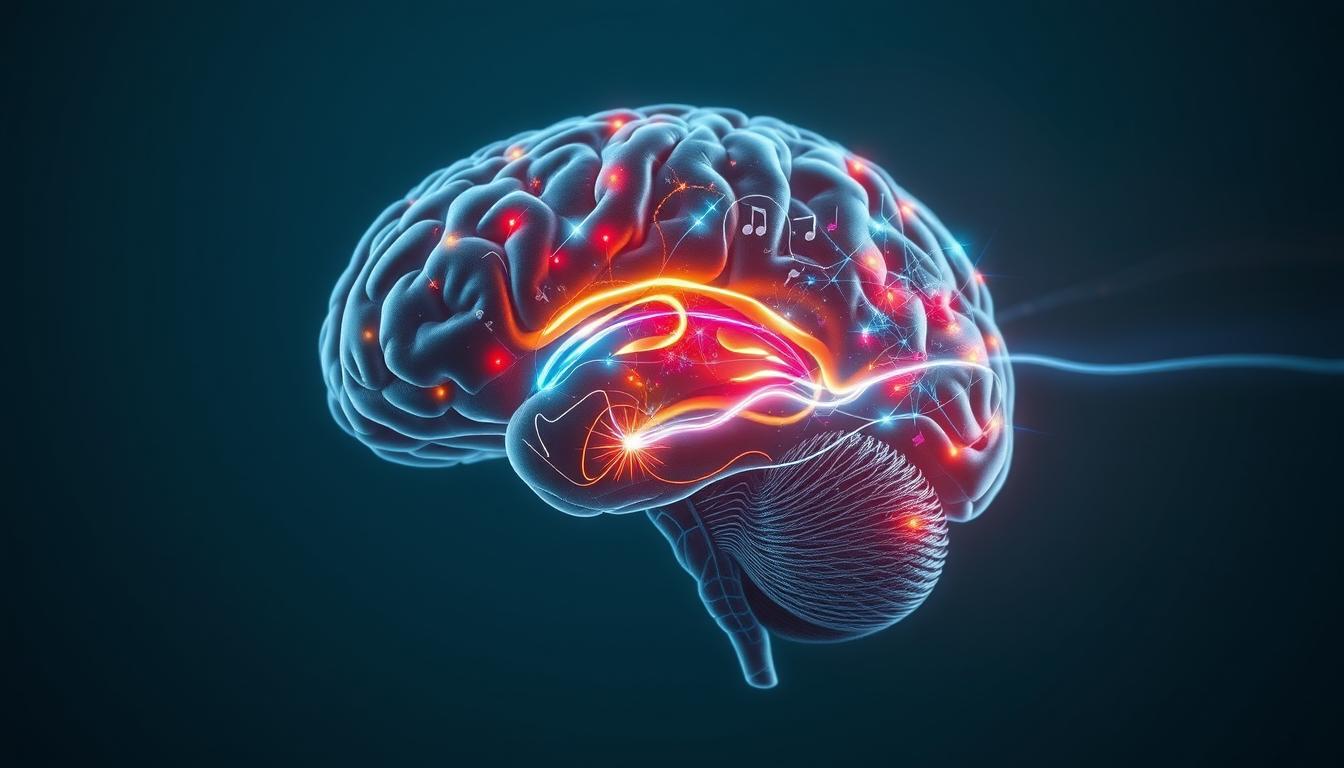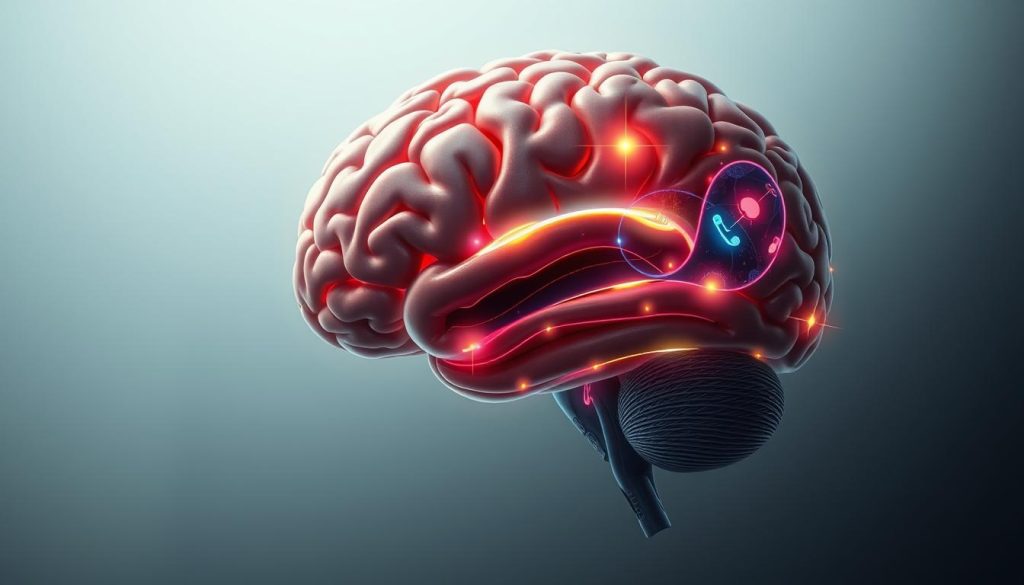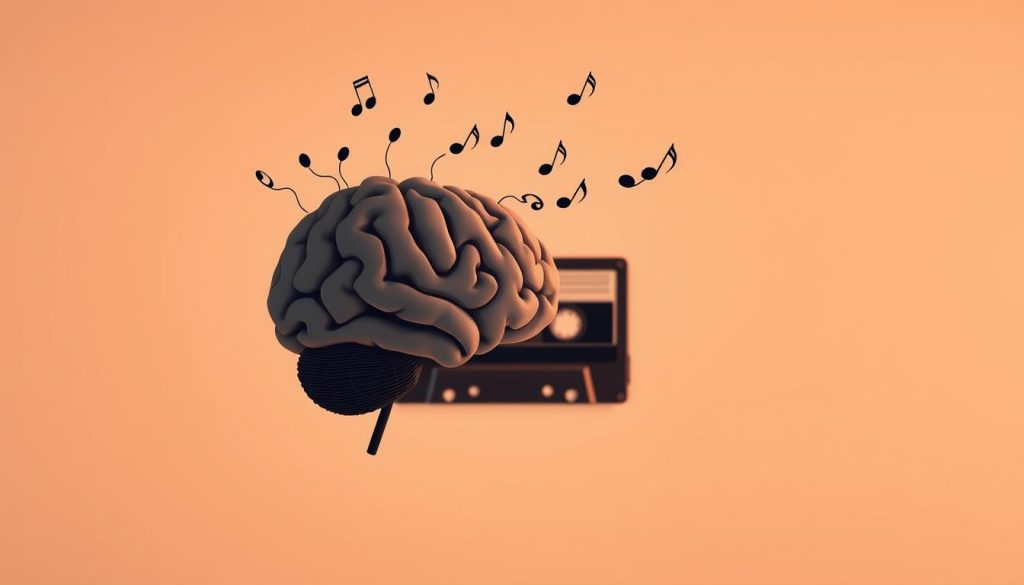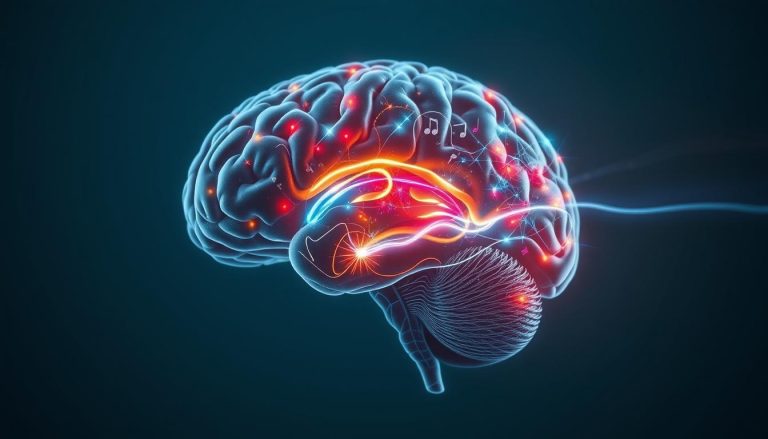
Music is an integral part of our daily lives, influencing our emotions, cognition, and overall well-being. The science behind music’s impact on the human brain is a fascinating field of study that has garnered significant attention in recent years.
Thank you for reading this post, don't forget to subscribe!The relationship between music and the brain is complex, with research revealing that it can have a profound impact on both cognitive function and emotional state. By understanding how music affects the brain, we can better appreciate its role in our lives.
Key Takeaways
- The science behind music’s effects on cognition and emotions.
- Music’s impact on emotional state and well-being.
- The complex relationship between music and brain function.
- How understanding music’s effects can improve our lives.
- The significance of music in everyday life.
How Music Affects the Brain: The Science Explained
The science behind music’s effect on the brain is both intricate and captivating. Music’s influence on the brain encompasses a wide range of neurological processes, from the activation of specific brain regions to the release of neurochemicals that affect our mood and emotions.
Brain Regions Activated When Listening to Music
Listening to music activates a network of brain regions. The process begins with the auditory cortex, which processes basic sound characteristics like pitch and rhythm.
The Auditory Cortex and Beyond
Beyond the auditory cortex, music engages other brain areas, including those involved in emotion, memory, and sensory processing. This widespread activation is part of what makes music such a powerful stimulus.

Neurochemical Responses to Musical Stimuli
Music triggers the release of several key neurochemicals, including dopamine, serotonin, and oxytocin. These chemicals play significant roles in regulating mood, pleasure, and social bonding.
Dopamine, Serotonin, and Oxytocin Release
The release of dopamine is associated with pleasure and reward, while serotonin helps regulate mood. Oxytocin, often referred to as the “cuddle hormone,” is involved in social bonding and attachment. Together, these neurochemicals contribute to the complex emotional and psychological responses we experience when listening to music.
1. Music Enhances Cognitive Function and Processing
Music’s role in enhancing cognitive abilities, such as problem-solving and language processing, is well-documented. The cognitive benefits of music are multifaceted, influencing various aspects of brain function.
Enhanced Problem-Solving and Analytical Thinking
Research indicates that music can improve problem-solving skills and analytical thinking. Listening to music stimulates the brain’s reward system, releasing dopamine, which enhances cognitive flexibility and creativity. This neural activation helps individuals approach problems from different angles, fostering innovative solutions.
Complex musical structures can particularly enhance analytical thinking by challenging the brain to recognize patterns and understand musical compositions.

Improved Focus and Attention Span
Music has been shown to improve focus and attention span in both children and adults. Background music, in particular, can create an optimal environment for concentration by masking distracting noises and promoting a stable mental state.
Studies have found that music training can lead to significant improvements in attentional abilities, as it requires discipline and the ability to maintain focus over time.
Better Language Processing and Communication Skills
Music also plays a crucial role in language processing and communication skills. Melodic intonation therapy, for instance, has been used to help individuals with aphasia regain language abilities through singing.
The rhythmic and melodic elements of music can enhance phonological awareness and syntax processing, contributing to better language skills. Moreover, music can facilitate communication by providing an alternative means of expression for those with language impairments.
2. The Psychological Effects of Music on Mood and Emotions
Music has a profound impact on our emotional well-being, influencing our mood in ways that are both complex and fascinating. The relationship between music and emotions is a dynamic one, with music having the power to evoke feelings of joy, calmness, and even nostalgia.
The psychological effects of music on our mood and emotions can be understood by examining how music interacts with the brain’s reward system and its role in emotional regulation. This involves understanding the neurochemical responses to music and how different genres and types of music can elicit various emotional responses.
Why Music Makes Us Feel Good: The Reward Pathway
Listening to music that we enjoy triggers the release of dopamine, a neurotransmitter associated with pleasure and reward. This activation of the brain’s reward pathway is a key factor in why music makes us feel good. The anticipation and expectation of musical peaks and climaxes also play a significant role in this process, enhancing the emotional impact of music.
The Role of Dopamine: Dopamine release is not just associated with the pleasure of listening to music but also with the anticipation of music. This neurotransmitter plays a crucial role in regulating emotional responses and motivation.
Music as a Tool for Emotional Regulation
Music serves as a powerful tool for emotional regulation, allowing individuals to manage their emotions and moods effectively. By choosing music that aligns with their current emotional state or desired mood, individuals can use music to enhance their emotional well-being.
| Emotional State | Recommended Music Type | Effect |
|---|---|---|
| Stress/Anxiety | Calming/Relaxing Music | Reduces stress and anxiety levels |
| Depression | Uplifting/Positive Music | Improves mood and reduces symptoms of depression |
| Fatigue | Energizing/Stimulating Music | Boosts energy and enhances motivation |
The Impact of Music on Emotions Across Cultures
Music is a universal language, understood and appreciated across cultures. The emotional impact of music, however, can vary significantly across different cultures due to differences in musical preferences, cultural associations, and personal experiences.
Cultural Variations: The way music is perceived and the emotions it evokes can be influenced by cultural background. For instance, certain melodies or rhythms may evoke different emotional responses in different cultures.
Understanding these cultural variations is crucial for appreciating the diverse ways in which music influences mood and emotions globally.
3. Music’s Influence on Memory Enhancement and Learning
Research has demonstrated that music can significantly influence memory formation and learning processes. This section delves into the ways music impacts memory and learning, exploring the cognitive benefits of musical training, the debated Mozart Effect, and the practical applications of music in educational and therapeutic contexts.
How Musical Training Strengthens Memory Formation
Musical training has been shown to enhance memory formation by stimulating various cognitive processes. When individuals learn to play a musical instrument, they develop their auditory skills, hand-eye coordination, and memory. Studies have found that musicians exhibit improved memory capabilities compared to non-musicians, suggesting that musical training can have a positive impact on memory.
The process of learning music involves encoding musical information into memory, which strengthens the brain’s ability to retain and recall information. This neuroplasticity induced by musical training can transfer to other areas of cognitive function, including verbal memory and spatial-temporal skills.
The Mozart Effect: Separating Fact from Fiction
The Mozart Effect refers to the theory that listening to Mozart’s music can temporarily improve cognitive function, particularly in tasks requiring spatial-temporal skills. While some studies have reported a positive effect, others have failed to replicate these findings, leading to controversy over the theory’s validity.
A closer examination of the research reveals that the Mozart Effect may be more nuanced than initially thought. The effect is not unique to Mozart’s music; other types of music that are enjoyed by the listener can also enhance cognitive performance. The key factor appears to be the listener’s emotional and cognitive response to the music.
Using Music as a Memory Aid in Education and Therapy
Music has been increasingly used as a tool to aid memory in educational and therapeutic settings. In education, music is used to enhance learning and retention of material, particularly in subjects like mathematics and language. Musical mnemonics can help students remember complex information by associating it with melodies or rhythms.
| Application | Description | Benefits |
|---|---|---|
| Educational Settings | Using music to teach new concepts and aid retention | Improved memory recall, enhanced engagement |
| Therapeutic Settings | Employing music therapy to support individuals with memory impairments | Better memory retention, emotional well-being |
| Memory Aids | Utilizing musical mnemonics to remember information | Enhanced memory, easier learning |
In therapeutic contexts, music therapy has been used to support individuals with Alzheimer’s disease, dementia, and other conditions affecting memory. Music therapy can stimulate memory recall, improve mood, and provide a sense of comfort and well-being.
4. Music Therapy Benefits for Mental Health and Wellbeing
As research into the effects of music on the brain continues to grow, music therapy is increasingly being utilized to support mental health treatment. This form of therapy leverages the emotional and cognitive responses to music to promote mental wellbeing and address a range of mental health challenges.
Treating Anxiety and Depression Through Music
Music therapy has been shown to be particularly effective in treating anxiety and depression. By providing a healthy outlet for emotions and reducing stress levels, music therapy can help alleviate symptoms associated with these conditions. The therapeutic relationship between the client and therapist is a crucial element, as it provides a supportive environment in which individuals can express themselves through music.
The process involves creating, singing, or listening to music tailored to the individual’s needs, under the guidance of a trained music therapist. This personalized approach allows for the addressing of specific emotional or psychological needs, making music therapy a versatile treatment option.
Benefits for Alzheimer’s, Parkinson’s, and Other Neurological Conditions
Music therapy also offers significant benefits for individuals with neurological conditions such as Alzheimer’s disease and Parkinson’s disease. Research has demonstrated that music can stimulate memory recall and improve cognitive function in patients with Alzheimer’s, even in advanced stages. For those with Parkinson’s, music therapy can help improve motor function and mobility through rhythmic auditory stimulation.
The use of music as a therapeutic tool in these conditions highlights its potential to enhance quality of life and provide cognitive and motor benefits. Music therapy sessions are designed to be engaging and enjoyable, promoting a sense of wellbeing and social interaction.
Sound Healing and Brain Response to Music for Stress Reduction
Sound healing, a form of music therapy that focuses on the use of sound waves to promote healing, has gained attention for its potential in reducing stress and promoting relaxation. By using specific sound frequencies, sound healing can influence brainwave activity, inducing a state of calm and reducing anxiety.
This approach is based on the principle that certain sound frequencies can entrain brainwaves, leading to a therapeutic response. The practice of sound healing can be particularly beneficial in today’s fast-paced world, where stress is a common factor in many mental health issues.
Conclusion: Harnessing the Power of Music for Brain Health
Music has a profound impact on both cognitive function and mental health. The psychological effects of music are multifaceted, influencing mood, emotions, and overall wellbeing. By understanding how music affects the brain, individuals can harness its power to improve their mental health and quality of life.
Research has shown that music can enhance cognitive function, improve memory, and even alleviate symptoms of anxiety and depression. The benefits of music therapy are being increasingly recognized, with applications in treating neurological conditions and promoting stress reduction. By incorporating music into daily life, whether through listening, creating, or music therapy, individuals can experience these benefits firsthand.
The connection between music and mental health is complex, involving a range of neurochemical responses and brain regions. By leveraging this knowledge, individuals can use music as a tool to regulate their emotions, improve their mood, and enhance their overall brain health. As the science continues to evolve, the potential for music to positively impact mental health and wellbeing is vast.




